News
Malaysian firm develops package-less packaging
26 May 2020A group of Malaysian Ph.D. students won the Institution of Engineering and Technology (IET) Save our Seas global engineering challenge with their new bagless approach to food packaging called the PICAS block. The competition is hosted in partnership with Greenpeace.
This new plastic-less packaging is constructed out of carrageenan – edible red seaweed – and starch to create food blocks that are dissolvable with the application of hot water. While the solution is currently designed for loose, green foods such as beans, the team will begin experimenting with the implementation of this packaging system for grains and lentils.

The problem statement for this most recent challenge asked competitors to design new reusable packaging or reimagine the approach of British supermarkets to dramatically reduce their need for single-use plastic packaging.
In the approach used by NanoMalaysia, the winning team in the competition, the beans are immobilized in a binding starch solution and then encased in carrageenan to prevent any moisture from reaching the product. The design also imparts tensile strength to the packaged beans thereby enabling them to be placed directly into a shopping basket from the shelf without any other protective packaging.
When submerged in boiling water, the starch-seaweed layer can be peeled back and the encased beans are released for cooking. The starch is tapioca-based rather than gelatin-based to make the packaging a viable alternative for all consumers.
Although single-use plastics provide convenience to consumers, they have fallen out of favor in recent years due to concerns about environmental sustainability. An EcoFocus Trends Survey from earlier this year showed a majority of US shoppers feel that healthy products should come with healthy and more sustainable packaging standards, which includes alternatives to plastic.
However, not only are consumers demanding more eco-friendly solutions, but they are willing to pay more for them, too. According to the survey, 64% of millennials say that "to them it is worth paying more for eco-friendly products," which is up 26% compared to the Baby Boomer generation.
Seaweed is a unique choice for this award-winning packaging alternative, albeit one that is growing in popularity. Edible and biodegradable packaging options have come into vogue in recent years and were even spotlighted as one of the top packaging trends for 2020. However, the idea was already in the works as early as 2017 when an Indonesian-based startup called Evoware debuted its edible wrapper made from seaweed. The company’s packaging can be eaten solid, or, much like NanoMalaysia’s solution, can be dissolved in boiling water.
While the idea for edible or biodegradable sustainable packaging is nothing new, it is one that will likely continue to gain steam as consumers continue to look for creative solutions from companies that promote both eco-friendly practices and convenience.
Related news
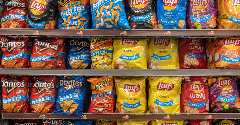
PepsiCo formulates ‘naked’ Cheetos and Doritos products
31 Dec 2025
US food giant PepsiCo has launched its Simply NKD range, a move it says reimagines its popular products with new formulations free from artificial flavours, dyes, and colours.
Read more
Debate over ban on ‘meaty’ names for plant-based products reaches stalemate
26 Dec 2025
The debate over a ban on plant-based products using “meaty” terms has reached a stalemate, leaving manufacturers in limbo and still facing overhauls to their marketing and packaging.
Read more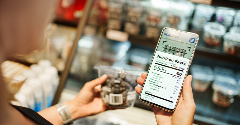
Has ‘clean’ had its day?
22 Dec 2025
Wielding clean-label positioning and fortification as marketing levers is a dangerous strategy, and brands would be better off explaining the hows and whys of the ingredients in their products, say experts.
Read more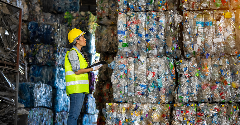
Pioneers of circular plastic packaging push for new policies
18 Dec 2025
Some of the world’s largest food and drink companies have grown frustrated at investing in circular packaging systems, as the majority “wait on the sidelines”.
Read more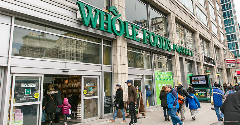
Whole Foods Market forecasts fibre frenzy for 2026
11 Dec 2025
Whole Foods Market has released its top 2026 trends, predicting that a fibre frenzy will take place next year as health-conscious consumers seek out nutritious, filling options.
Read more
Sorghum emerges as better-for-you hero ingredient
9 Dec 2025
With the launch of Novak Djokovic’s sorghum-based brand, the grain’s popularity in the better-for-you snacking sphere is on the rise, thanks to its nutritional and sensory properties.
Read more
Innovation promise in 'maturing' plant-based dairy alternatives market
8 Dec 2025
Plant-based dairy is a maturing market that still faces significant hurdles around taste, functionality, nutrition, and price, but industry is innovating fast, according to experts speaking at Fi Europe.
Read more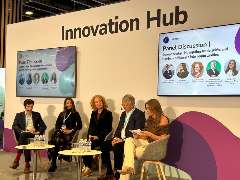
Turning global trade challenges into opportunities
4 Dec 2025
While our food innovation ecosystem is in a healthy place, certain barriers persist. A panel of experts at Fi Europe shared their ideas and strategies for overcoming these, to fully unleash Europe’s potential.
Read more
Celebrating the winners of the Fi Europe Innovation Awards 2025
3 Dec 2025
Food industry stakeholders celebrated as the winners of the Fi Europe Innovation Awards were announced at a ceremony in Paris.
Read more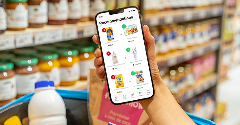
Yuka’s food scanning app helps consumers make healthier choices
2 Dec 2025
Global food scanning app Yuka helps consumers understand the content of their shopping baskets and shapes producers’ reformulation plans.
Read more